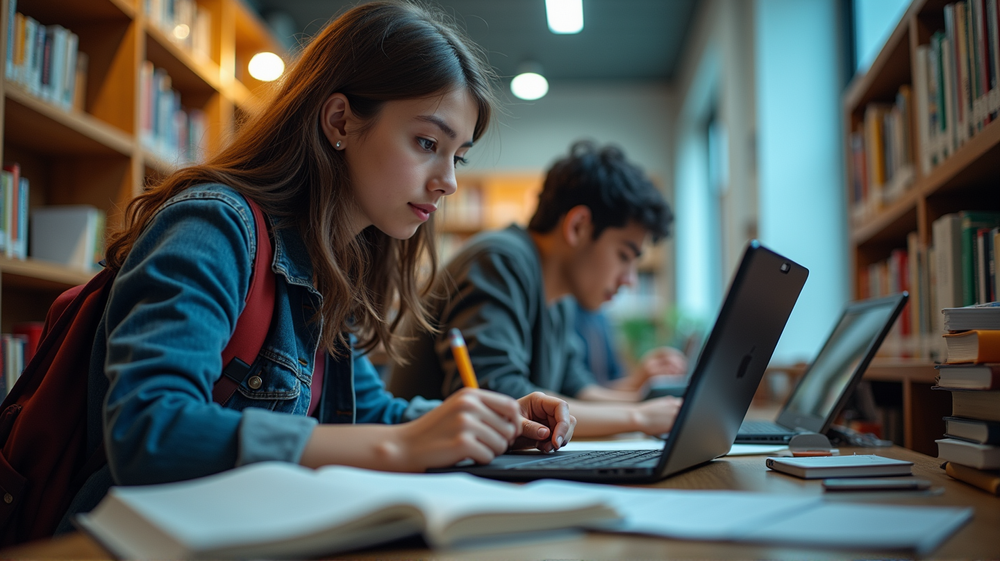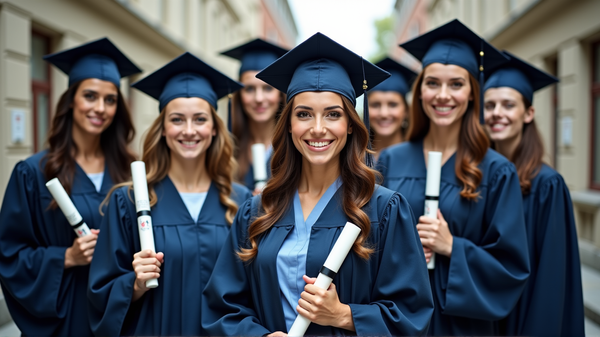The Rise of ChatGPT Dissidents: Students Who Choose Creativity Over AI
In the modern age, where artificial intelligence (AI) pervades nearly every aspect of our lives, there emerges a growing segment of college students choosing a different path—one devoid of technological shortcuts, favoring creativity and critical thinking. These “ChatGPT dissidents” stand against the wave of AI, seeking to regain the essence of human creativity and independence that technology threatens to overshadow.
A Personal Awakening
Mónica de los Ángeles Rivera Sosa, a Political Communications student at Emerson College, learned firsthand about the potential pitfalls of relying heavily on AI. Initially introducing ChatGPT into her academic regimen to alleviate stress, she quickly found it creeping into every facet of her work, diminishing her joy for essay writing. The realization she hadn’t independently crafted an essay in ages propelled her away from the allure of AI, sparking introspection against mindless automation. “I realized I couldn’t remember the last time I had written something by myself,” she said, suggesting the artificial satisfaction AI tools can furnish.
The Creative Concerns Shared by Many
Rivera Sosa isn’t alone in this sentiment. A pattern starts to form as students like Macarena Paz Guerrero, from Ramon Llull University, echo similar concerns: the loss of creativity, self-discipline, and the engagement with critical, independent thought. She remarks, “At university, we should encourage experimentation and learning instead of just copying and pasting questions into a machine.”
The Bigger Picture: AI’s Impact on Education
According to a Microsoft study, AI reliance leads to less diverse outcomes, affecting creativity and critical involvement in tasks. Francisco Javier González Castaño, a professor at the University of Vigo, indicates that those who resist AI are often more demanding of themselves, seeking excellence beyond algorithmic limits.
The Dual-Edged Sword of AI
While some argue AI tools offer convenience, allowing an easy digest of information, it’s crucial to recognize their limitations. As Violeta González, a pianist and graduate student, points out, ChatGPT lacks the ability to foster crucial decision-making, often inventing information it lacks, necessitating a discerning, critical filter that not everyone implements.
A Future Teetering on AI Reliance
Despite these criticisms, AI usage in universities is prevalent, with a staggering percentage of Spanish undergraduate students leveraging these tools for their learning needs. Professor Toni Lozano highlights this duality, recognizing AI’s benefits yet acknowledging its potential to lull students desiring shortcuts into intellectual complacency.
A Quest for Balance
A significant challenge lies ahead for both educators and tech developers: nurturing independent thought amid an automated age. New initiatives by companies like OpenAI and Anthropic aim to develop AI tools that encourage critical problem-solving, exemplifying a commitment to balancing technological advancement with the maintenance of essential human skills.
The Human Element: Preserving Our Innate Abilities
The move away from AI by Rivera Sosa and her peers raises questions about the broader impact of technology on education and creativity—vital elements that define our humanity. As students reconsider their dependency on AI, universities face the crucial challenge of incorporating technology without undermining the critical thinking and originality schools endeavor to cultivate.
In an ever-connected world, these students inspire a re-evaluation of priorities, advocating for a future where creativity and technology coexist in harmony. According to EL PAÍS English, this ongoing debate shapes the educational landscapes we navigate today, prompting reflection on how we engage with our tools and ourselves.




